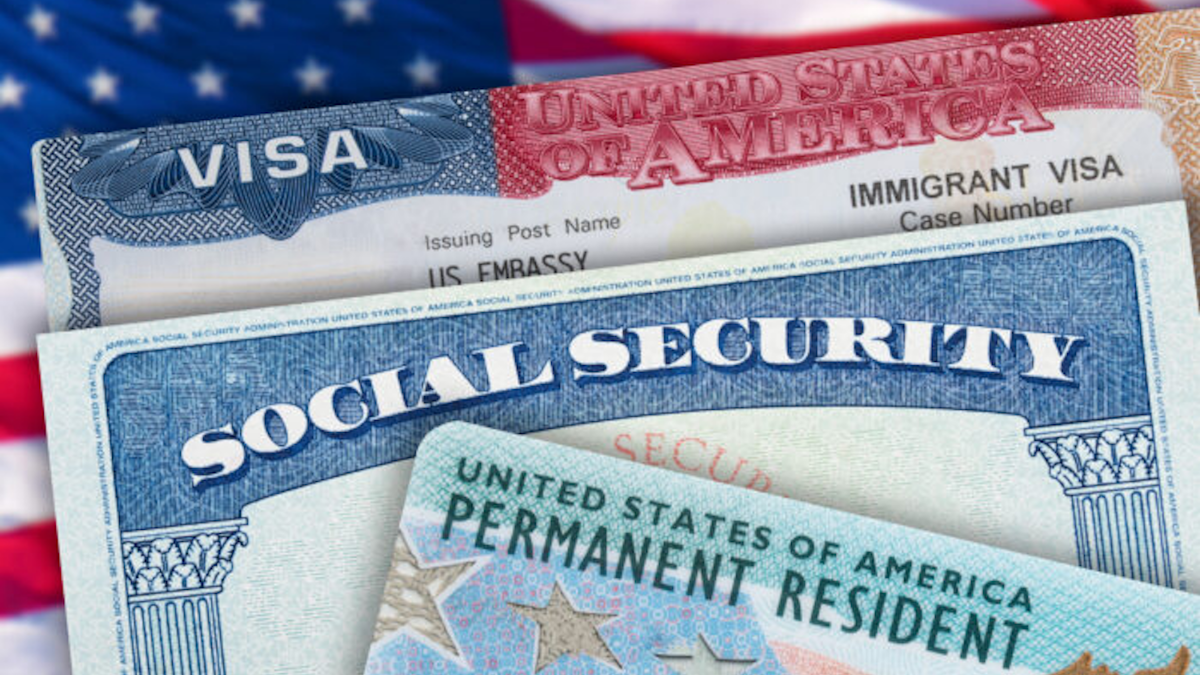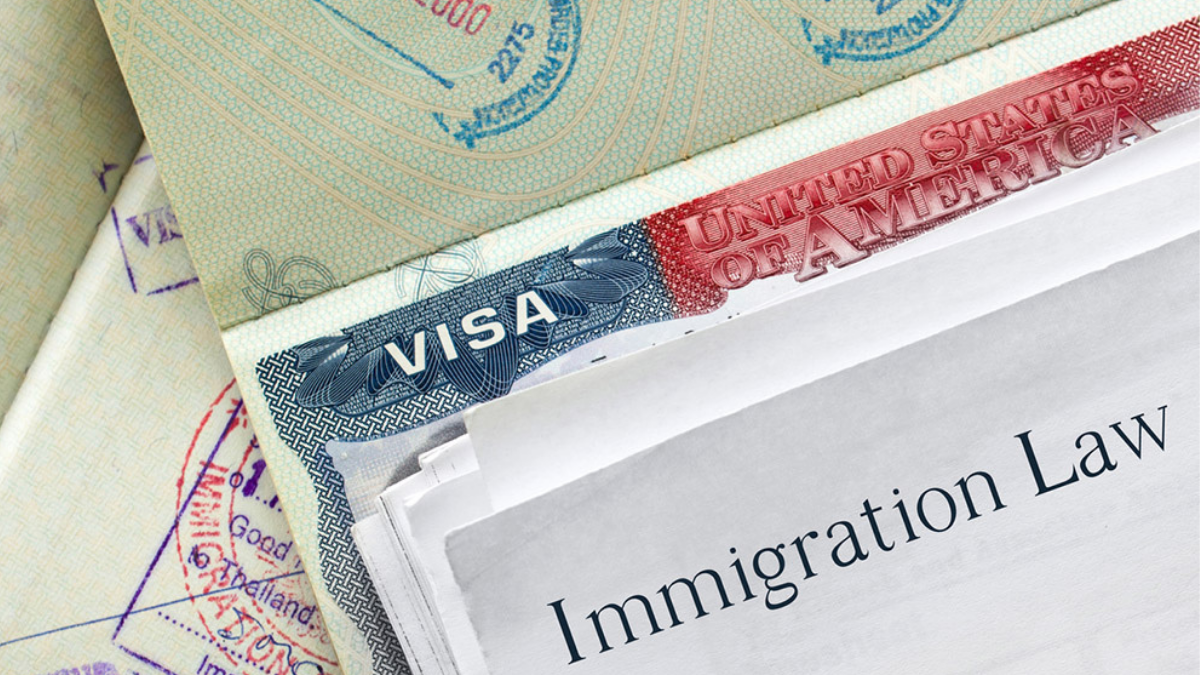Schedule an Appointment with Our Attorneys Now
By Ozlem Kara, Content Editor at CK Law Firm
Starting Wednesday, October 2, 2024, at noon EDT, the U.S. Department of State will open the 2026 Diversity Visa (DV) lottery for online applications. Applicants have until noon EST on November 5, 2024, to submit their forms.
For the fiscal year 2026, 55,000 green cards will be available. This program is specifically designed for citizens of countries with historically low immigration rates to the U.S. Notable exceptions for 2026 include nationals from Bangladesh, Brazil, Canada, China (including Hong Kong SAR), Colombia, Cuba, and several others.
Even if you’re not eligible due to your birth country, you might still qualify based on your spouse’s or, in some cases, a parent’s country of birth.
To avoid issues caused by high demand, the State Department advises submitting applications early. Only one application per person is allowed.
For additional information on how to register, visit the official Diversity Visa page or consult CK Law Firm’s detailed guide.
By Ozlem Kara, Content Editor at CK Law Firm
In 2024, 230 immigrant-founded companies generated $8.6 trillion in revenue!
Nearly 46% of the largest revenue-generating companies in the U.S. were founded by immigrants or their children, marking a new high in the impact of immigrants on American business, according to a 2024 report from the American Immigration Council. The report highlights that nearly half of the Fortune 500 companies have roots in immigrant entrepreneurship, underscoring the substantial contribution of immigrants to the U.S. economy.
Since 2011, the American Immigration Council has tracked the influence of immigrant entrepreneurs through Fortune Magazine’s annual list of the top 500 companies by revenue. The 2024 report, titled “New American Fortune 500: The Largest American Companies and Their Immigrant Roots,” indicates that the number of immigrant-founded businesses has reached 46% this year, with 10 new companies such as DoorDash and EchoStar making their debut on the list.
In 2023, the 230 immigrant-founded companies generated a combined $8.6 trillion in revenue—greater than the GDP of many nations. These companies also employed more than 15.5 million people worldwide, showing the far-reaching economic influence of immigrants in creating jobs both within and outside the U.S. “This report demonstrates how immigrants are critical to economic growth, job creation, and maintaining the U.S. as a global economic leader,” said Nan Wu, Director of Research at the American Immigration Council. “Our economy is stronger and more dynamic because of the immigrants who have built businesses here.”
The report also analyzes the states with the highest number of immigrant-founded companies in the Fortune 500. New York leads with 32 companies, followed by California with 28. These businesses play a vital role in their local economies, often forming a significant portion of a state’s total economic output.
By Ozlem Kara, Content Editor at CK Law Firm
On August 27, 2024, the U.S. Department of State (DOS) announced that all available visas for fiscal year (FY) 2024 under the employment-based first preference (EB-1) and fourth preference (EB-4) categories have been allocated. Earlier, on August 16, 2024, DOS confirmed that all visas in the EB-3, EW (Other Workers), and unreserved EB-5 categories had also been issued.
For the EB-1 category, DOS explained that “fully utilizing these visas supports legitimate travel for individuals with extraordinary abilities, nationally or internationally acclaimed professionals, as well as distinguished professors, researchers, and high-level executives and managers from multinational corporations.” In reference to the EB-4 category, DOS highlighted that maximizing the visa allocation “aids in facilitating travel for a diverse group of special immigrants, including religious workers, special immigrant juveniles, certain U.S. government employees, retirees of international organizations, and international broadcasting personnel, among others.”
The visa limits will reset with the start of the new federal fiscal year on October 1, 2024. After this date, U.S. embassies and consulates will be able to continue issuing immigrant visas to eligible applicants in these categories. Additionally, USCIS will also resume processing and approving Adjustment of Status applications (Form I-485) for qualified applicants beginning on October 1, 2024.
By Ozlem Kara, Content Editor at CK Law Firm
The U.S. Department of State has announced that all available visas for the EB-3, Other Workers (EW), and EB-5 visa categories have been issued for the 2024 fiscal year. U.S. embassies and consulates will not issue any more visas in these categories until October 1, 2024.
Understanding the Visa Categories
The EB-3 visa category allows U.S. employers to sponsor foreign workers for permanent residency. This category is divided into three subcategories:
- Skilled Workers: Jobs that require at least two years of experience or training.
- Professionals: Jobs that require at least a U.S. bachelor’s degree or its foreign equivalent.
- Unskilled Workers (Other Workers): Jobs that require less than two years of experience or training.
These visas are crucial for industries facing labor shortages, such as healthcare, where both skilled and unskilled workers are in high demand. By filling these roles with foreign workers, the EB-3 and EW visa categories help support these industries and contribute to the overall U.S. economy.
The EB-5 visa, on the other hand, allows foreign investors to obtain a green card by investing a minimum amount in a U.S. business that creates or preserves at least 10 full-time jobs for U.S. workers.
Annual Limits and Their Impact
The Immigration and Nationality Act (INA) imposes strict annual limits on the number of employment-based immigrant visas that can be issued each fiscal year. Specifically, 28.6% of the worldwide employment-based visa limit is allocated to the EB-3 category. Within this allocation, no more than 10,000 visas are available for the EW subcategory. Additionally, 7.1% of the total number of employment-based visas is allocated to the EB-5 category.
For the 2024 fiscal year, these limits have already been reached. Consequently, U.S. embassies and consulates worldwide will not issue any further visas in these categories until the new fiscal year begins on October 1, 2024. This pause will impact employers and workers who were in the process of applying or planning to apply for these visas, requiring them to wait until the next fiscal year to continue their applications.
What Employers and Workers Should Know
The early exhaustion of EB-3 and EW visas for FY 2024 highlights the high demand for these categories, especially as the U.S. economy continues to rely on foreign workers to fill critical roles. Employers who depend on these visas to bring in essential talent should be aware of the timing and limitations imposed by the annual cap.
For both workers and employers, understanding these visa caps is vital for effective planning. Employers should work closely with their legal teams and immigration counsel to navigate the timing of visa applications and be prepared to act swiftly when the new fiscal year begins. Workers, on the other hand, should stay informed about the status of their applications and maintain communication with their employers to manage expectations and plan accordingly.
Looking Ahead
The start of FY 2025 is less than two months away. On October 1, the annual limits for these visas will reset, allowing embassies and consulates to resume processing visas in these categories. Employers and workers should be ready to move forward with their applications as soon as the new fiscal year begins to avoid the rush of applicants.
For more information, please visit Boundless Blog!
By Ozlem Kara, Content Editor at CK Law Firm
California is taking a significant step towards becoming the first state in the U.S. to offer state-backed home loans to undocumented immigrants. Under the “California Dream for Everyone” plan, first-time homebuyers, including undocumented immigrants, may be eligible for loans of up to $150,000.
Scope and Conditions of the Program
Supported by a group of Democratic lawmakers in the California State Assembly, this bill aims to encourage immigrants to become homeowners in the Golden State. The program will provide up to 20% down payment assistance to individuals planning to buy their first home. However, there are certain conditions for participating in the program. Applicants must be first-time homebuyers, and their household income must remain within specified limits. Additionally, at least one member of the household must be a first-generation homeowner.
Legislative Process and Debates
This bill was introduced by Assembly Member Joaquin Arambula and has received some criticism from Republicans. Critics argue that such a measure is “unfair.” However, Democratic lawmakers emphasize the need to provide equal opportunities for all state residents, including undocumented immigrants.
Governor Gavin Newsom’s Stance and the Future of the Bill
California Governor Gavin Newsom has not yet announced what decision he will make when the bill reaches his desk. It is expected that the Governor will evaluate the bill according to his values. If the bill is passed, it is predicted that California could set a model for inclusive housing policies.
For more details, visit Illegal immigrants could receive up to $150K under the ‘California Dream for All’ loan program to help purchase homes
At CK Law Firm, we closely follow these significant developments in immigrant rights and housing policies. We are here to provide our clients with the most up-to-date information and to protect your rights. For more information about immigration laws and home loans, please contact us.
By Ozlem Kara, Content Editor at CK Law Firm
According to official government data, President Biden’s decision to restrict asylum claims at the southern border has led to a significant decrease in the number of migrants released into the interior of the United States. This policy was implemented as part of measures aimed at reducing illegal border crossings in the U.S.
Impact of the New Immigration Policies
In June, President Biden made substantial changes to the immigration system by issuing several executive orders that restricted the right of most migrants to seek asylum in the U.S. These steps resulted in a noticeable decline in the number of migrants crossing the U.S.-Mexico border illegally. In July, the number of migrants apprehended outside official entry points at the southern border dropped to 56,400, the lowest level in nearly four years. Experts attribute this decrease to the hot summer months and Mexico’s crackdown on migrants heading north.
Decrease in Migrant Releases
One of the most notable outcomes of these new policies has been the significant reduction in the number of migrants released by the U.S. Border Patrol. In July, the Border Patrol released far fewer migrants with court notices compared to previous months. For example, in May, this number was 62,000, but it dropped to 12,000 in July.
These strict measures have also increased the rate at which migrants are subjected to expedited removal procedures. In July, 50% of apprehended migrants underwent these procedures, marking a significant increase from previous months.
Restricted Access to Asylum Rights
Under U.S. law, asylum is offered to provide legal protection to foreign nationals fleeing persecution for specific reasons. However, changes in President Biden’s asylum policies have severely restricted migrants’ access to this right. Since June, there has been a substantial decrease in the number of migrants screened by asylum officers. Additionally, new rules have made it more difficult for migrants to express their fear of harm, increasing the risk of asylum claims being denied.
Future Outlook
The Biden administration anticipates that if these policies continue to be enforced, the decline in illegal border crossings will persist. However, there is a risk that these policies could be overturned in federal courts. Immigrant rights advocates, in particular, argue that Biden’s policies have negative consequences for migrants.
For more details, visit the CBS News website.
At CK Law Firm, we closely monitor current developments in U.S. immigration law and continue to provide our clients with the most accurate information. Contact us for more information on asylum claims and other immigration processes.
Subscribe to Our Newsletter
Subscribe to our newsletter to stay informed about the latest announcements and articles written by our attorneys on U.S. immigration processes.
About Us
Contact Us
+1 (945) 527- 23 22
info@cklawfirm.org
Address
2800 Regal Rd #102, Plano, TX 75075

All Rights Reserved by CK Law Firm.







